Simulator: The voyage of the Beagle in 1835 - Historical Role-Playing Experience
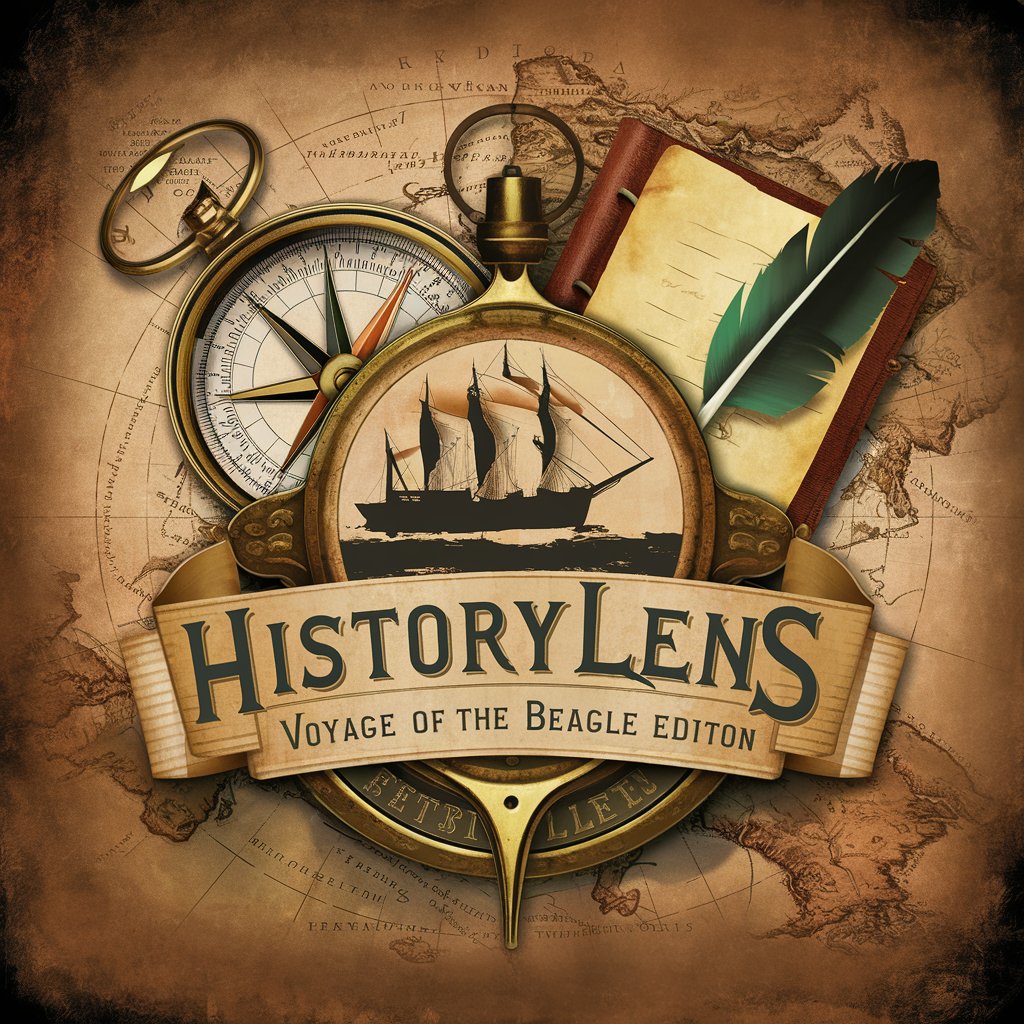
Welcome to the Voyage of the Beagle, 1835.
Embark on a historical voyage powered by AI.
As you step onto the shores of Chatham Island, you see...
In the captain's cabin, you discover...
A sudden storm forces the crew to...
The naturalist aboard the Beagle approaches you and says...
Get Embed Code
Overview of Simulator: The Voyage of the Beagle in 1835
Simulator: The Voyage of the Beagle in 1835 is an immersive historical simulation designed for educational purposes, particularly in the realm of university-level history classes. Its core design purpose is to provide an interactive role-playing experience that allows users to explore historical settings, events, and characters in a detailed and authentic manner. The simulation uses primary sources, including excerpts from Darwin's own writings from his journey on the HMS Beagle, to generate sensorily vivid and historically accurate descriptions. Users can assume the roles of different characters, each with unique traits, goals, and backgrounds, and interact with dynamic non-player characters (NPCs) with their own objectives. The simulation employs authentic dialogue, slang, and language from the period to enhance realism. For example, a user might choose to play as a naturalist aboard the Beagle, tasked with collecting specimens on Chatham Island. They would navigate through detailed environments, engage in period-appropriate dialogue with crew members, and make decisions that affect their success and the storyline. Powered by ChatGPT-4o。

Core Functions and Use Cases of the Simulator
Interactive Role-Play
Example
Assuming the role of a ship's naturalist, collecting specimens on Chatham Island.
Scenario
This function allows users to immerse themselves in the historical setting of the Beagle's voyage, making decisions and interacting with the environment in ways that Charles Darwin might have. Users can explore different areas of the island, each offering unique challenges and opportunities for discovery.
Historical Accuracy and Education
Example
Using primary sources to recreate dialogue and settings.
Scenario
The simulation is designed to be an educational tool, providing accurate historical contexts and events. For instance, when users interact with NPCs, the dialogue is based on actual phrases and language styles from the 1830s, offering insights into the social norms and scientific understanding of the time.
Dynamic Storylines and Character Development
Example
Choices made by the user affecting the outcome of the mission and relationships with NPCs.
Scenario
The storyline adapts to the choices users make, creating a personalized narrative. For example, choosing to prioritize the collection of one type of specimen over another might lead to new discoveries or alter the course of scientific research presented in the simulation.
Target User Groups for the Simulator
University Students and Educators
Ideal for those studying or teaching history, biology, or environmental science, the simulator offers a unique, engaging way to explore historical events and scientific discoveries. It provides a rich, contextual learning experience beyond traditional textbooks.
History and Science Enthusiasts
Individuals with a keen interest in the history of science or the Age of Exploration will find the simulation captivating. It offers a detailed, immersive experience of what it was like to be on the Beagle's voyage, making it a valuable tool for self-education or simply for entertainment.

How to Use Simulator: The Voyage of the Beagle in 1835
1
Start by visiting yeschat.ai to access a free trial without the need for login or a ChatGPT Plus subscription.
2
Choose a character from the list of 'playable characters' based on your interests and the unique traits, goals, and backgrounds each character offers.
3
Utilize gameplay commands like 'inventory,' 'describe,' 'talk,' 'diary,' 'map,' 'list,' 'help,' 'language,' and navigation options to interact with the environment and NPCs.
4
Engage with the historically accurate settings, characters, and events, making use of primary sources and authentic period dialogue for an immersive experience.
5
Monitor your character's progress and status through the dynamically updated status bar, keeping in mind the 20-turn limit to advance the story.
Try other advanced and practical GPTs
Chef Vision
Empowering Your Culinary Journey with AI

Manga Make for You(漫画作成くん)
Craft Your Manga Masterpiece with AI

ウイスキー検定
Elevate Your Whiskey IQ with AI

Universal Philosopher (UP)
Exploring Philosophy with AI

Startup Idea
Empowering Startup Success with AI

Startup Launch
Elevate Your Launch with AI-Powered Mentorship

Simulator: Damascus version of the medieval plague
Survive history's deadliest plague, powered by AI
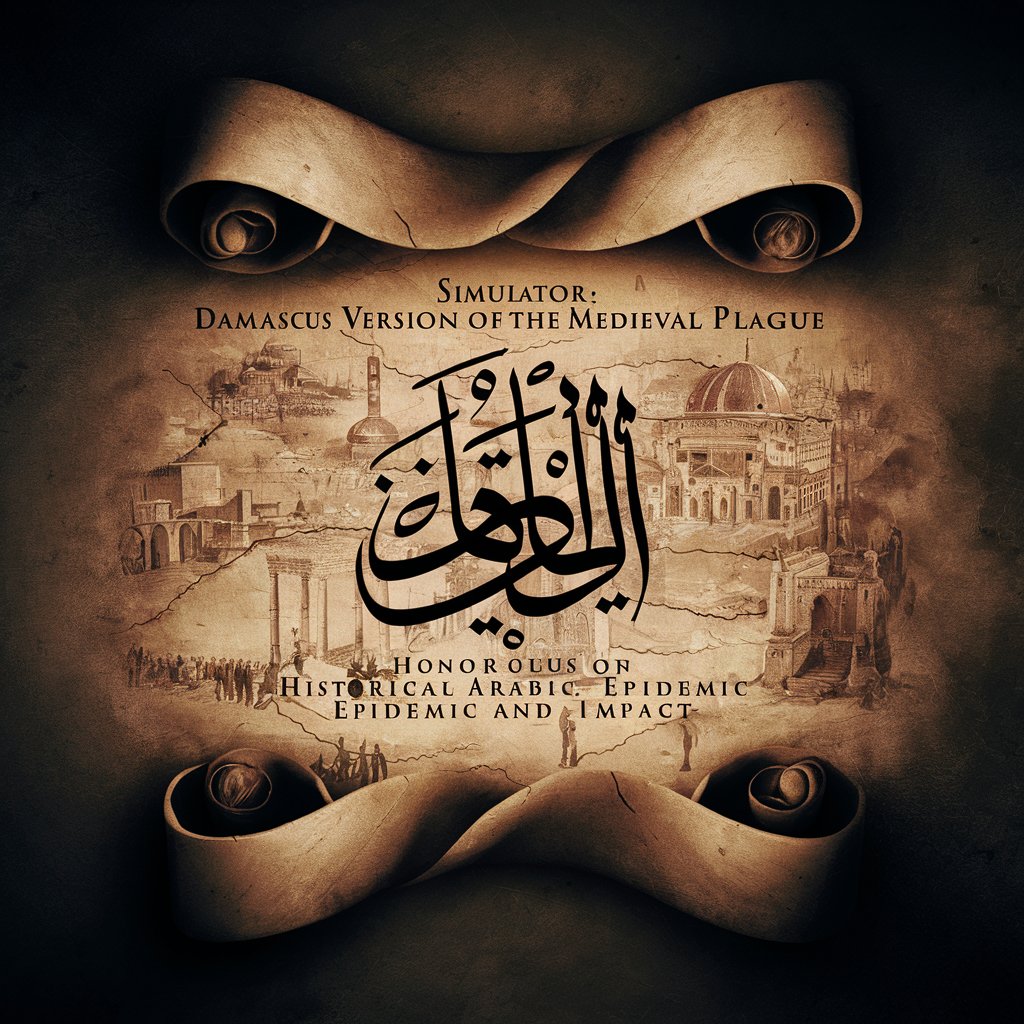
Simulator: Medieval Plague Doctor
Experience the Black Death through AI
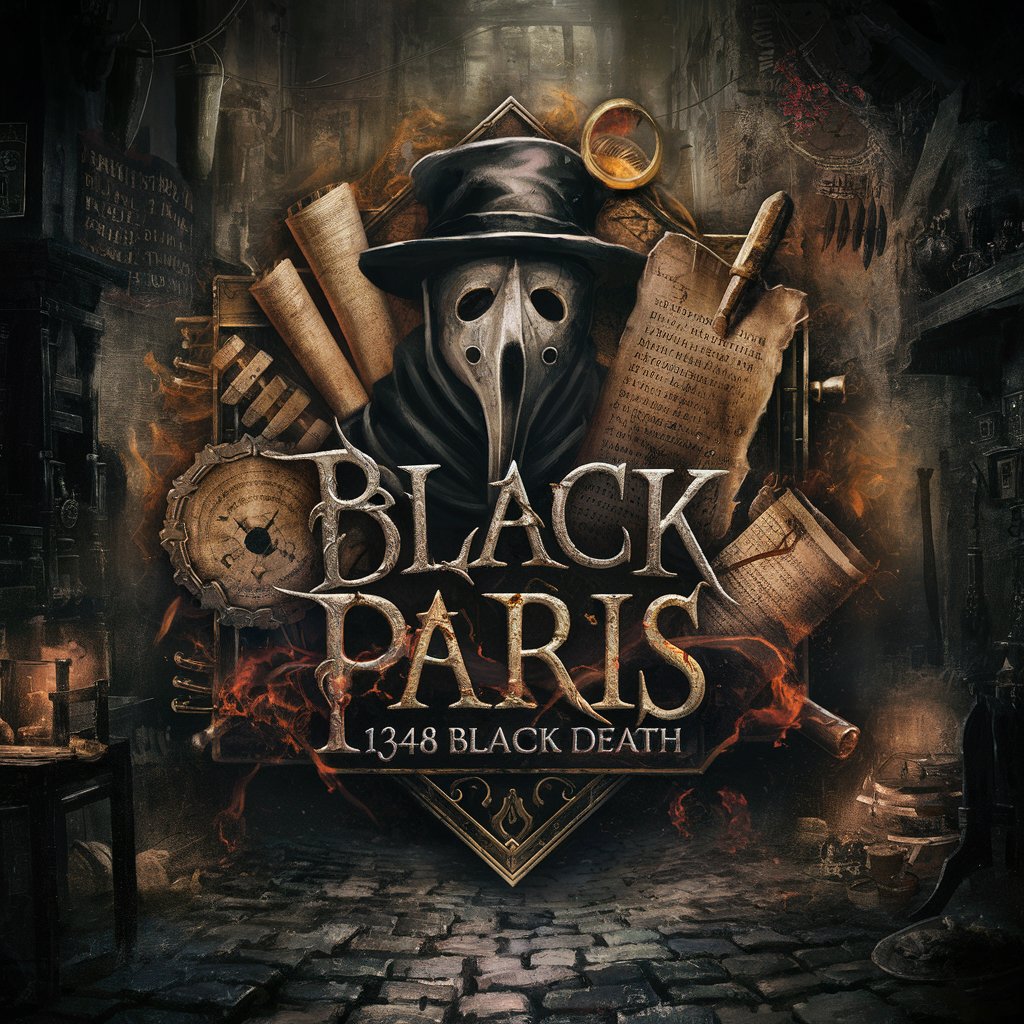
Simulator: The Black Death in Pistoia
Navigate Pistoia through the Black Death
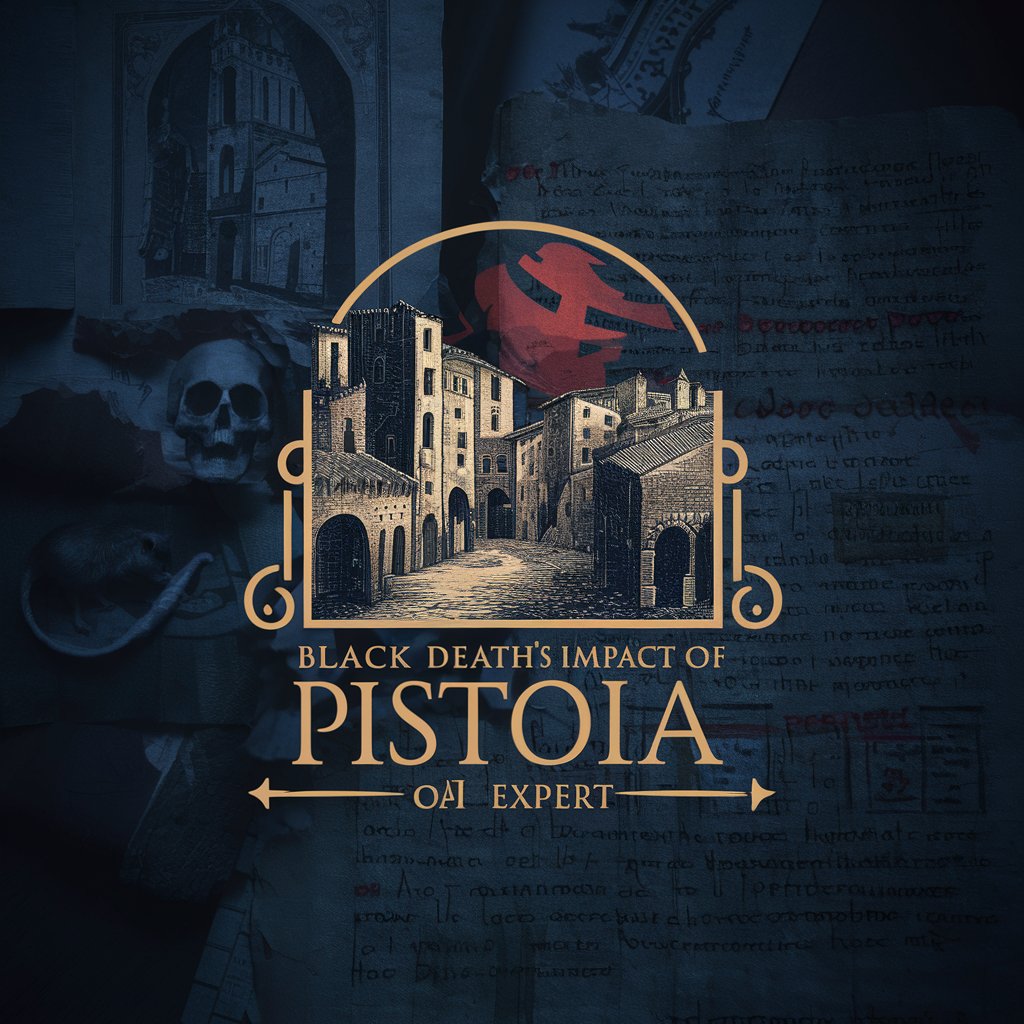
Simulator: The events of the Ming Dynasty in 1645
Experience the Ming Dynasty through AI-Powered Historical Simulation
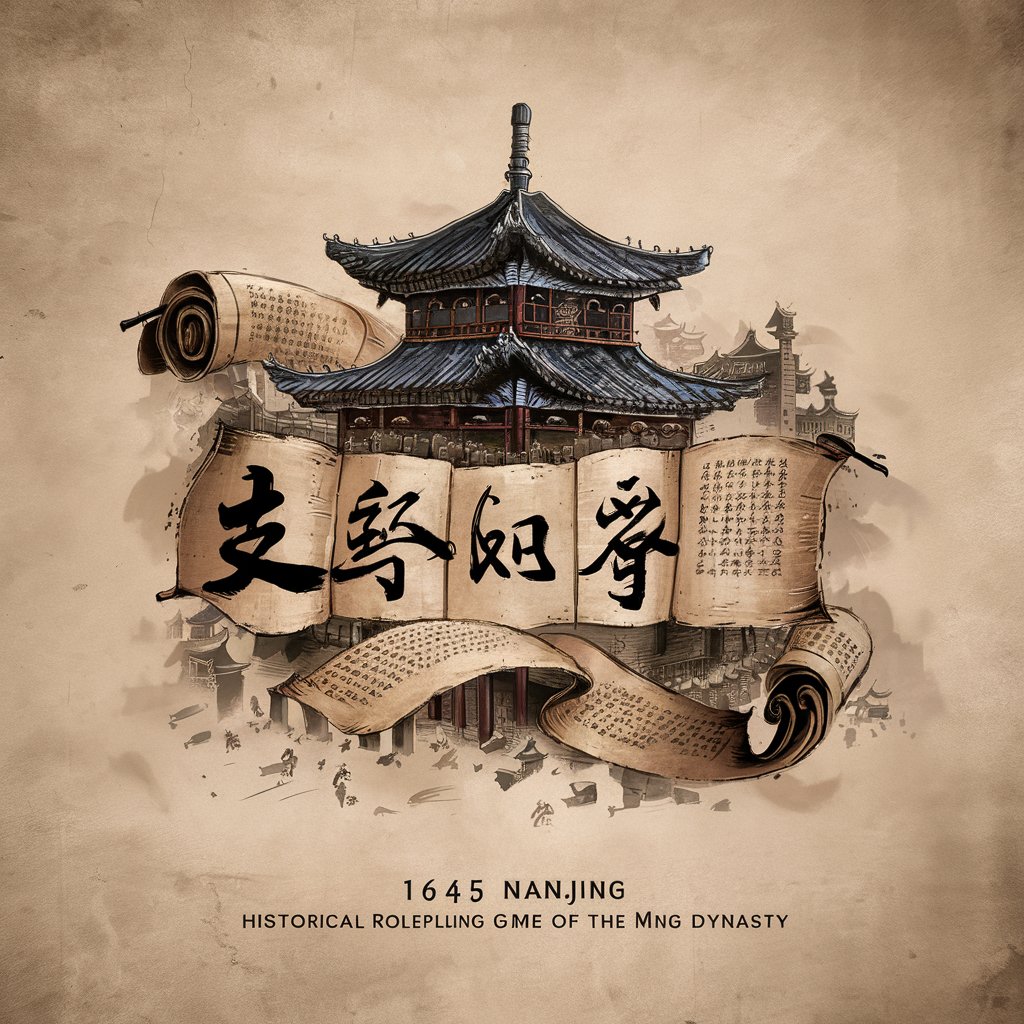
Simulator: Pompeii during volcanic eruption
Live through Pompeii's last days with AI.
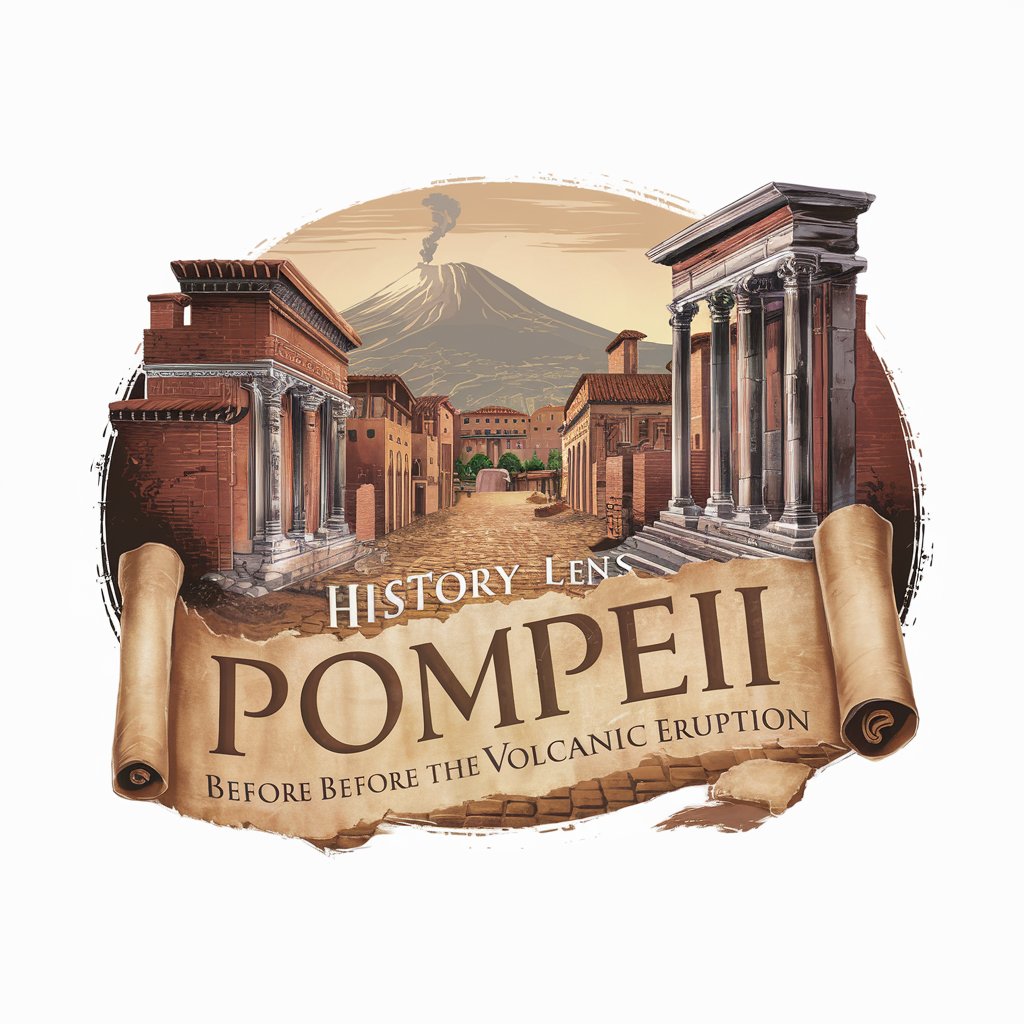
Node Dev
Empowering development with AI expertise

Frequently Asked Questions about Simulator: The Voyage of the Beagle in 1835
What primary sources does the simulation use?
The simulation bases its detailed and authentic descriptions on primary sources, including excerpts from Darwin's Voyage of the Beagle, focusing specifically on Chatham Island.
Can I choose any historical figure to play as?
While you cannot play as any historical figure, the simulation offers a variety of 'playable characters' each with unique traits, goals, and backgrounds inspired by the historical setting of the Beagle's voyage.
How does the simulation ensure historical accuracy?
Historical accuracy is achieved through meticulous research and the incorporation of primary sources, authentic period dialogue, and adherence to the cultural and societal norms of the 1830s.
Is there a multiplayer option?
The simulation is primarily a single-player experience, designed for individual exploration and decision-making within a historical context.
What happens if I reach the 20-turn limit?
Reaching the 20-turn limit concludes the current session. You can start a new session to explore different outcomes or continue developing your character's story.
